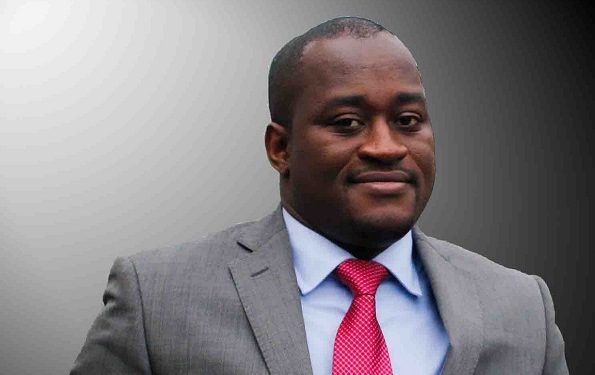An Economist Dr Theo Acheampong has explained the conditions under which the Monetary Policy Committee (MPC) of the Bank of Ghana (BoG) will cut the current policy rate of 30 percent.
The Policy Rate is an interest rate that the central bank sets in order to influence the evolution of the main monetary variables in the economy like consumer prices, exchange rate or credit expansion, among others.
Cutting the rate will bring down the cost of borrowing for businesses and households but that will depend on further drops in the rate of inflation, he said.
Ghana’s inflation has been dropping consistently for some months now. The Inflation rate for December 2023 was 23.2% as announced by the Government Statistician Professor Samuel Annim.
But, Dr Acheampong indicated that the current rate “is still high using the Bank of Ghana’s benchmark range of 6% to 10%; the cost of some goods still remains high on the shelves. In response to inflationary concerns, the Central Bank maintained the policy rate at 30% since September 2023.”
“I forecast that further drops in inflation will give MPC room to cut the policy rate to between 50-100 basis points [i.e., 0.5-1%] by the end of Q1 2024 and maybe a further 2%-3% cut by Q3 2024, all things being equal. This will help bring down the cost of borrowing for businesses and households. However, it is still nowhere near one of the lowest MPC rate of 13.5% that was recorded in September 2021,” he wrote on X.

On the issue of policy rate, another economist Dr John John Kwakye hawovere urged the Bank of Ghana (BoG) to reduce the 30 percent after observing that it is not helpful to businesses.
Dr Kwakye, also Director of Research at the Institue of Economic Research (IEA), said that no economy can thrive at the rate of 30 percent hence his call to the central bank to reduce the rate.
“Bank of Ghana has a duty to reduce the interest rate burden on the economy. No business or economy can thrive with over 30% [policy] rate. The problem lies in the Bank’s exclusive reliance on interest rates to control inflation without addressing the supply/cost drivers as well,” he wrote.
Bank of Ghana has a duty to reduce the intetest rate burden on the economy. No business or economy can thrive with over 30% interest rates. The problem lies in the Bank’s exclusive reliance on interest rates to control inflation without addressing the supply/cost drivers as well.
— J. K. Kwakye (@JohnKwabenaKwa1) January 14, 2024
At the last Monetary Policy Committee (MPC) press conference held in Accra on Monday, November 27, the BoG decided to maintain the policy rate at 30 percent.
Governor of the Bank of Ghana Dr Ernest Addison stated that although inflation was dropping, the rate was still high, hence the decision to maintain the policy rate at 30 percent.
The Committee noted that tighter financing conditions, slower growth in the manufacturing and services sectors, and China’s slower recovery were exerting some moderating influence on global economic activity.
Earlier aggressive policy tightening by advanced economies central banks has contributed to the dampening of inflationary pressures with headline inflation decelerating in many of their economies. This has led to a pause in the tightening cycle. But core inflation remains high and is declining slowly due to strong labour markets, Governor Addison said.
In the outlook, he added, central banks are expected to maintain policy rates at high levels for much longer periods to contain the still-elevated inflation levels relative to targets.
The prevailing higher policy rates, long-term bond yields, and renewed strength of the US dollar could continue to keep global financing conditions tight with consequences for Emerging Market and Developing Economies, he added.
Furthermore, rising geopolitical tensions are creating uncertainty about crude oil prices and full crystallization of this risk could undermine the disinflation process in many economies, including Ghana.

